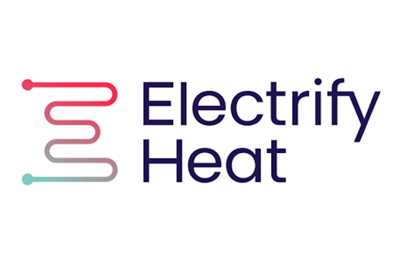PRASEG & Electrify Heat launch Clean Heat Policy Recommendations
Following PRASEG & Electrify Heat panels held last year, we jointly announce Clean Heat Policy Recommendations

PRASEG hosted the launch of a set of policy recommendations aimed at accelerating the growth of the clean heat market. Hosted by Alan Brown MP, Chair of PRASEG, the policy recommendations were collated from industry and policymakers who contributed to a series of panel discussions last year.
The newly launched document, Priorities for Clean Heat: 8 Steps to Supercharge Clean, Efficient Home Heating to Lower Bills, Boost Security, and Create Jobs, outlines comprehensive recommendations to enhance the heat pump market and promote energy efficiency measures.
The lunch reception held in the Palace of Westminster featured insightful remarks from Alan Brown MP and contributors Leo Vincent (E3G) and David Cowdrey (MCS Charitable Foundation.)
Priorities for Clean Heat: 8 Steps to Supercharge Clean, Efficient Home Heating to Lower Bills, Boost Security, and Create Jobs
1. Remove levies from electricity bills - Lower the running cost of electricity and, by extension, heat pumps. Progress with the Review of Electricity Markets Arrangements (REMA) to restructure the way that levies are paid on bills, so they are no longer disproportionately loaded on electricity. Government must also consider near-term options to lower heat pump running costs, including a potential reduced rate for electricity used by heat pumps.
2. Support for upfront costs
Continued grant funding with a range of finance options enabled. Maintain universal grants to ensure households can purchase heat pumps upfront. Grants should be structured in a way that can be adapted to other business models. For low-income households, the government will need to fully support homes to decarbonise.
3. Forge ahead on easy wins
Lay the Clean Heat Market Mechanism SI and progress the Future Homes Standard without further delays. The secondary legislation for the CHMM is drafted and ready to be brought to parliament, but no timeline has been set. The FHS is already well behind schedule and, at this rate, new homes could still be being built to non-FHS standards in 2027. Without urgent introduction of both policies, our heat pump targets and climate goals are in jeopardy.
4. Boost skills and supply chain
Government must provide long-term policy certainty and stability to convey to heating sector workers that heat pumps are the future, not gas or oil. As an industry, we need to increase awareness of the Low-Carbon Heating Technician Apprenticeship, including among installers, colleges, and potential students. We must do more to engage the next generation of workers by highlighting the potential offered by the sector and how to train for them.
5. Get the grid in gear
To decarbonise heating, we must decarbonise the grid, and that means investing in transmission infrastructure an coordination between Government, Ofgem, the Electricity System Operator and the network operators. The priority now is moving from action plans to delivery models and investment at pace. This includes investing ahead of demand, a shift in Ofgem’s investment regime, speeding up planning and consent processes, and ensuring the supply chain has enough capacity to achieve the grid upgrades required.
6. Advice and marketing
Government should introduce a national, public awareness-raising campaign on the benefits of home energy efficiency and low carbon heating improvements. When it comes to retrofitting our homes, Government has a crucial (and currently under-developed) role to play - not just in the transition, but in the consumer journey as a trusted messenger.
7. Unlock and enable the full capability of all heat pumps
Unlock the potential of smart, time-of-use heat pump tariffs to significantly lower bills and reduce the need for new grid upgrades. Government must deliver an effective smart meter roll out, promptly introduce half-hourly settlement, and set out clear standards to enable interoperability. In addition, policy should support distributed heat networks and shared ground source loops, giving more low carbon heating options for consumers in flats and other high-density buildings.
8. Reform EPCs
Energy Performance Certificates (EPC) are a key tool for engaging and informing consumers, but desperately require reform to ensure they are effective. Government should convene an expert panel with a remit to recommend a package of reforms to EPCs within one year.
